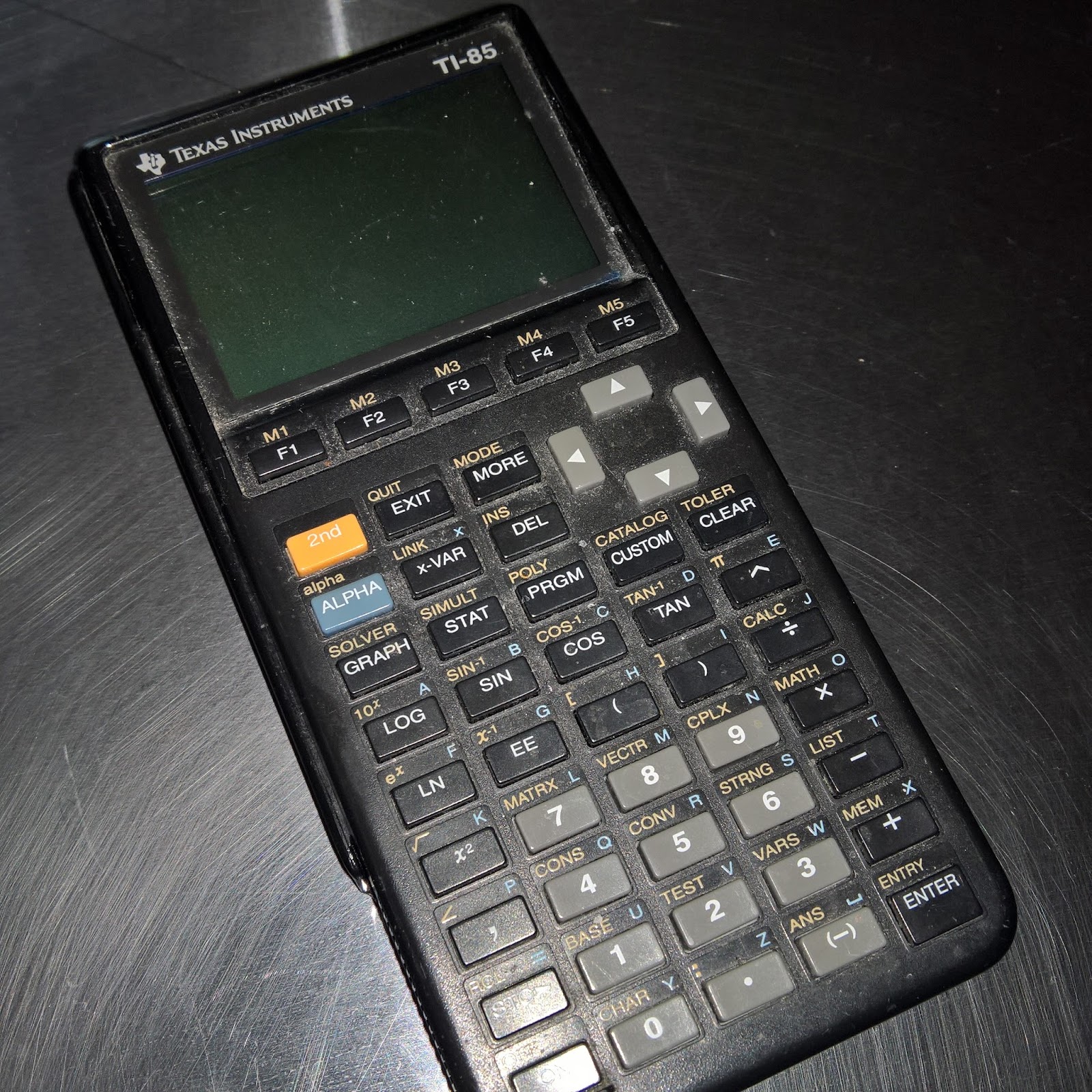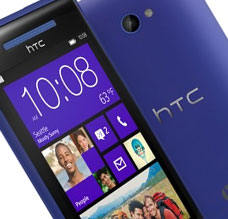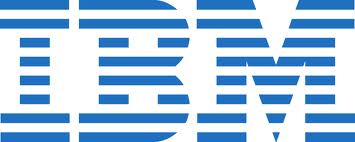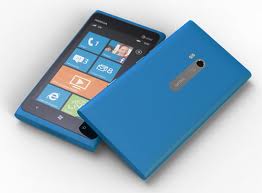Rummaging thru a box of stuff in storage, I ran across my old Texas Instruments TI-85 calculator. I had to stop and fiddle it for a moment. I grabbed some AAA batteries, only to discover that the CR1616 backup had given up… the calculator operates like new, as in factor reset… but sadly, that means a game program I wrote for it 20 years ago was finally gone forever.
Back in the early 90’s, Exeter Area High School had an advanced math course that required a TI-81 calculator. I gladly used the course as an excuse to get my hands on this relatively expensive (near $100 in 1990 dollars) but amazing piece of hardware at the time.
In short order, I added its programming language to the list of languages I had already taught myself. I loved using trigonometric functions to create pictures. I used to program it to do my trig and pre-calc homework for me. (In retrospect, my attempt at “cheating” was a hack that I learned more from than any lecture or textbook ever would teach me… you see, in order to program the calculator to do advanced math for me, I had to thoroughly understand it, myself.)
 |
|
My own TI-85, which I upgraded to
for calculus at UNH. It’s a bit dusty today.
It cost about $100 when I
purchased it in the early 90’s.
|
The TI-8x calculators were my “gateway drug” to my love of mobile development. I was already developing software for PCs, but I loved the challenges imposed by yet more limited footprints and hardware capabilities.
I kept my TI with me to the point that my sister nicknamed it a “porta-geek”… (There was even a girl who stole it from me, thinking to wound me for the fact that I wasn’t interested in dating her. It had no effect; I obliviously assumed I’d misplaced it in my own absent-mindedness. The story came out several years later, after I’d purchased a replacement.)
The term “porta-geek” is a term I still whimsically apply on occasion to my current daily driver mobile device, my Lumia 950XL running Windows 10. My sister’s jibe didn’t phase me, either.
By coincidence, I was also in Target’s electronics department today. I was surprised to notice that they still had several 20+ year old TI-80-somethings… but rather than the price being lower, the prices are actually higher.
 |
|
A selection of same-generation TI calculators at Target today (3/20/2016). Notice the TI-80-somethings still going for about $100+.
|
I can’t really say why 20+ year old calculators should still cost more than they originally did… clearly normal technology market forces are not in effect for them. My spidey-sense for socialistic-driven monopoly tingles. I’m not the only one to have noticed the… discrepancy… over the past couple decades. ( https://www.quora.com/Why-does-a-TI-83+-calculator-cost-the-same-as-it-did-12-years-ago )
That said, they were, and are great devices.
I’d love to see a Windows 10 emulator app made out of them…. maybe some day I’ll find enough spare time… 🙂



